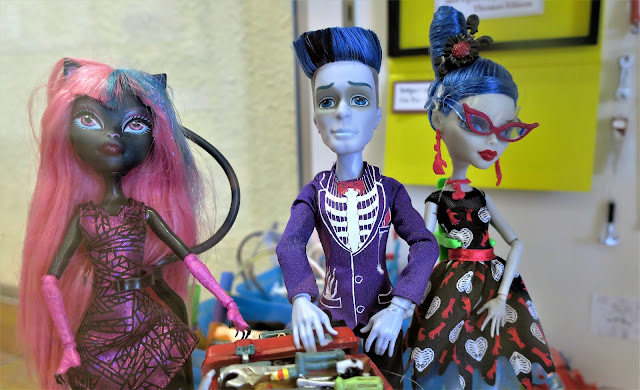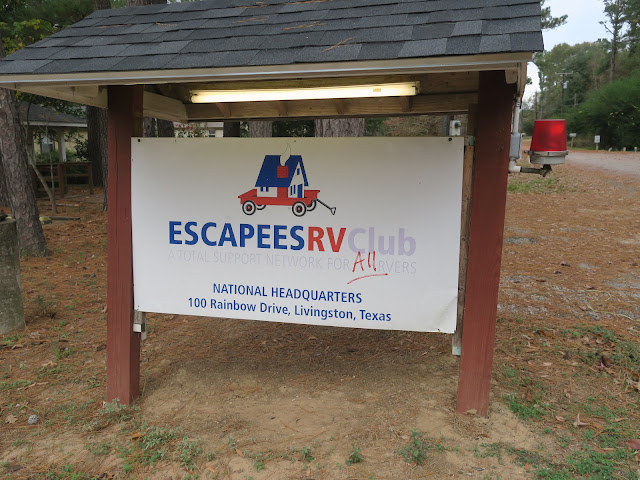 |
| Brains for lunch. Kutaisi, Caucasus Georgia. February 2012. Credit: Mzuriana. |
Backstory
I come from intelligent parents. My siblings and I are intelligent people.**
No hubris here. It's just a fact, as evidenced by life-long assessments by individuals or organizations outside our nuclear family.
Part of who I am - ever since a startling, single comment by my fourth grade teacher, Mrs. Murray - is the immutable acceptance of my intelligence.
Did I forget a person, place or thing from earlier in the day, yesterday, last week, last month, last year? Sure. Did I worry even one nanosecond about it? Nope. I didn't even think about it. There was nothing unusual about it. And, in general, did I have a good memory? Yes. As for childhood memories, I've never had the encyclopedic recollection of these that one of my sisters has. So nothing unusual for me there.
Did I think I was immune from some sort of dementia in the future? Nope.
My paternal grandfather, in his 80s, developed dementia (I heard), attributed (I believe) to atherosclerosis. One of my paternal aunts had a similar experience in her 80s. I don't know the extent of their dementia, i.e. mild or severe.
My father was only 75 when he died of pulmonary hypertension and mitral valve regurgitation. It's possible that, had he lived into his 80s, he would also have developed some level of dementia.
My mother developed dementia at some point in her 80s. (She died at age 91.) It was gradual, and it eventually forced her to let go of:
- Work activities she had heretofore relished,
- Driving,
- Playing computer games,
- Web surfing,
- Emailing with family members, and
- Cooking in her kitchen without someone present.
Some of her personal-care disciplines fell by the wayside, too, such as getting dressed every day, applying lipstick, making her own bed - but I'm unsure how much of this was a function of an impaired cognitive state or learned helplessness because of well-intentioned, but disempowering helpfulness by some family members (i.e. doing things for her that she could have done and always had done for herself).
My mother also had Type II diabetes, which she invariably pooh-poohed as "nothing," and thus, until very late in the game, she did virtually nothing to manage properly.
To my knowledge, neither of my maternal grandparents developed dementia. But if they had survived the illnesses that killed them in their mid-80s, it's possible they would have had that experience.
My powers of denial and discounting
Frankly, I ascribed my mother's cognitive challenges to her cavalier attitude about managing her diabetes, her antipathy toward virtually any sort of physical exercise, and possibly, long-term side effects of her pharmacological salad.
I "knew" it was likely that I am a candidate for some sort of dementia when I reach my mid-80s or later because of my paternal side's atherosclerosis history, but .......... that's so far away, right? And if I catch the causal agents early enough, to prevent or manage the progress of atherosclerosis, I can perhaps prevent or at least slow the onset or the severity?
And I've been seeking medical screening that will illuminate any early signs of pathology that lead to dementia!
Also, I already do most of the things the experts tell us to do! I stopped smoking more than 10 years ago. I'm at a healthy body weight. I get a moderate amount of exercise (could do better here). I drink alcohol on a continuum between "occasionally" and "sometimes."
My journey into aging has been predicated on an assumption that I would enjoy sustained cognitive health at least into my mid-to-late 80s.
I did not dismiss the likelihood that I'd be diagnosed with some form of cancer that I'd have to respond to. After all, my mother had cancer three times; my paternal grandmother died in her 50s of cancer; my maternal grandmother died of cancer; my maternal grandfather died of cancer. And, hell, I was a smoker for most of my adult life. I was also obese for much of my adult life. So I'm not universally in denial about my health.
When everything stopped ... for a moment
This past September, I had just moved to a new apartment in a city new to me in State A.
The move happened after a 60-day period (June 30 through August 31) in which I, in the second year of COVID times:
- Moved out of an apartment in a different city in State A;
- Traveled to State B for a couple of weeks to visit with family and friends;
- Traveled back to an area new to me in State A;
- Traveled to both familiar and new-to-me destinations in State C;
- Traveled back to State A for a week to look for apartments in the new-to-me city;
- Returned to State B for a couple of weeks to visit with family and friends (and to offer support to my daughter while she had COVID); and
- Circled back to State A to move in to my new place.
To tell you the truth, those two months are pretty much a blur.
So here's the thing that shook me to the core:
I teach English online to students, mostly business or academic professionals, all over the world.
On the morning of September 9, ten days after moving in to my new apartment in my new city, I was in a lesson with one of my students. I shared with her how I'd just moved in to my new place. She asked me what city I was in.
I didn't know the answer.
I drew a complete fucking blank.
Nothing else in my head or my body was different, as far as I know.
My words came out the way they should. (No garbled sounds or word order weirdness that might indicate a TIA).
I felt no weirdness in my limbs or facial expression.
I didn't feel lightheaded or dizzy.
I said, "just a moment," and I stood up and walked to my apartment door and opened it so I could look in the corridor, confident that this would jog my memory. It did not.
As I look back now, I think I may have scurried (electronically) to my browser to pull up Google maps to see if that would deliver the information.
I don't recall now how I recollected my new city, but the important consequences of this incident were:
- Both my student and I felt distressed and worried - OK - alarmed;
- The very foundation of my world shifted.
- After we ended the lesson, I popped two aspirin in case I was about to have a stroke. I looked at my face in the mirror. My mouth didn't droop on one side. My walking was normal. My hand movements normal.
What the hell happened there?!
On September 17, I had an appointment with my new health care provider. I described what happened and explained my fear of something-something - a TIA? Early sign of dementia? What?
She gave me a very short cognitive assessment test. She gave me three words to remember, then asked me some other stuff, then came back to the three words, which I did remember. There was no indication of cognitive or memory impairment.
I was only somewhat soothed, because that weird event earlier in the month was appalling.
Because this was such an extraordinary event, I talked more to my provider. I said nothing like this had happened before. I did not want to let it go.
I described other symptoms that had emerged in the last 18 months or so:
Changes in my sleep patterns - going to bed super early (like between 8:30 and 9:00), being sleepy around the middle of the day, and more recently, an occasional dull headache when I awoke. I wondered about sleep apnea.
Nothing in the blood or urine work that we did that day revealed anything remarkable.
I scurried to take more cognitive tests, all online. Results did not indicate anything abnormal.
Although what happened was a loud clanging alarm bell at first, the sound dimmed. I was addressing it; I was taking the right steps.
And then .....
On December 2, there was another lesson. A different student.
We were proceeding through an article together. She would read aloud a paragraph and then we'd pause to talk about pronunciation and intonation, vocabulary, and content. We'd pass to the next paragraph.
At a certain point in the article, I was unsure where we were - which paragraph we'd just finished and thus which one was next.
In the past, I would have said - without any hesitation other than a sheepish tone - "where are we now?" Because there was nothing abnormal about losing track of one's place in a longish text. But because of the astonishing experience in September, I tried to cover up, which resulted in me staying on the paragraph we'd just read - I had guessed incorrectly where we were. Heheh.
This alarmed my student, which, in turn, alarmed me. Again - no signs that one reads of a TIA.
So since then I am acutely sensitive to any memory lapse. The search for a word. The remembering of someone's name from the past. What I did seconds earlier.
I started watching a youtube channel of someone with Lewy Body Dementia.
For reassurance, I have searched for situations in which people fear they have dementia, but do not, and I have come up empty. There seems only to be the reverse: People who are unaware they are impaired: Anosognosia. However, this comes close: Stalked By the Fear That Dementia is Stalking You.
COVID connection
Something I have noticed in the past year - among my friends and students - is a surprisingly common lament about memory lapses.
I want to apply this to my own situation, to normalize my situation (if there is even a "situation"), to assuage my fear of some kind of cognitive pathology that will force me to change everything - everything! - I had envisioned in my young-old and middle-old future.
I almost burst into tears when I read this: It’s not just you – we are all more forgetful during the pandemic, experts say. Here’s how to fix it. I had read similar articles previously, but this one seemed so much more certain about what might be a shared phenomenon that we can attribute to this COVID era.
I would also propose that COVID arrived after six years of Trumpian stressors, of ghastly and deadly exhibitions of racism (that continue to unfold), barbaric family separations at the border, and current attempts of White supremacists to further embed racism by banning the teaching of critical race theory, to ban books that address racial truths as told by those who experience those truths, and so on. ......... My point being: We were already stressed before COVID arrived.
Holding many thoughts
I've caught myself thinking too many lines of thoughts in quick succession. For example, I start to move my body toward the kitchen to get A, but in the briefest span of time before I arrive there, my mind has already moved to a whole other line of thinking, maybe two!, and when I arrive in the kitchen, I forget why I went there.
Lots of contact, but maybe not the right kind of contact
I've made a conscious effort to initiate and maintain contact with people in my circle, present and past. I live in a new location where I've not made local new friends (thank you, pandemic), so geographic distance precludes face-to-face visits with the old.
Most of my contact with my friend- and family circle has been via email or text. It occurred to me recently that this is not the same as talking to someone on the phone. Furthermore, one of the advantages of regular real-time (and not text) contact is that we note any changes in each other's speech, judgement, memory, etc. Our real-time present communications help keep us on our toes.
I've begun to initiate phone calls in addition to emails or texts.
Yes, there's also zoom, and I use that a lot with my work, but I've learned there is a counter-intuitive intimacy present via phone that is not on zoom.
Memory impairment in the context of age
To the National Institute of Aging: This was so completely unhelpful:
"Many people worry about becoming forgetful. They think forgetfulness is the first sign of Alzheimer's disease. But not all people with memory problems have Alzheimer's. Other causes for memory problems can include aging, medical conditions, emotional problems, mild cognitive impairment, or another type of dementia." [Emphasis added.]
"Memory problems can include aging." Not actionable. Not measurable. Dismissive. If it's a natural part of aging, why are they memory "problems"?
The NIA chart below, however, was helpful - irrespective of age:
Differences Between Normal Aging and Alzheimer's Disease| Normal Aging | Alzheimer's Disease |
|---|
| Making a bad decision once in a while | Making poor judgments and decisions a lot of the time |
| Missing a monthly payment | Problems taking care of monthly bills |
| Forgetting which day it is and remembering it later | Losing track of the date or time of year |
| Sometimes forgetting which word to use | Trouble having a conversation |
| Losing things from time to time | Misplacing things often and being unable to find them |
Seriously, is it correct to call Column A "normal aging"? How is "normal aging" different from "average memory" or "typical memory" or "healthy memory" or "adult memory"?
Resources on typical memory
Working Memory: The Engine for Learning
Medical Definition of Memory Span
How Memory Functions
My conclusions
Inconclusive.
**Intelligence does NOT default to healthy life skills at home, at work, and in our communities. It does not rule out learning disabilities (e.g. dyslexia) or ADHD or some other neurodivergence.


.JPG)







